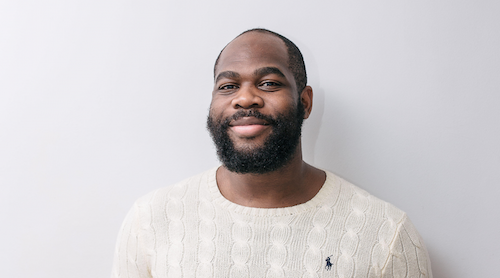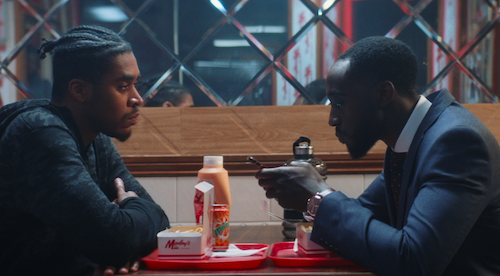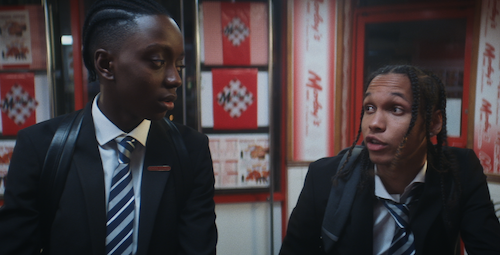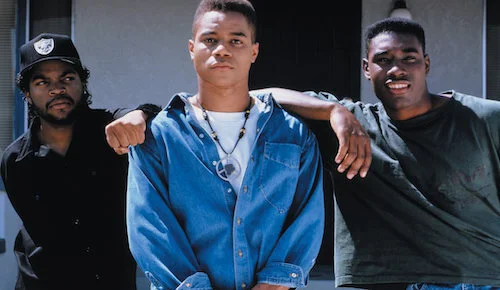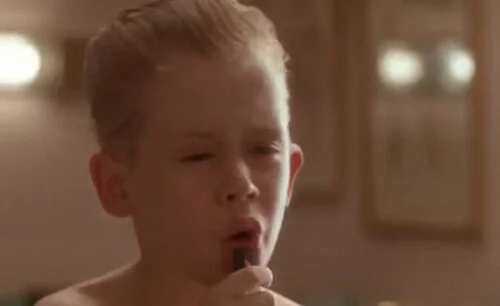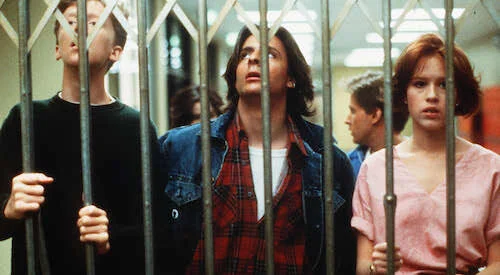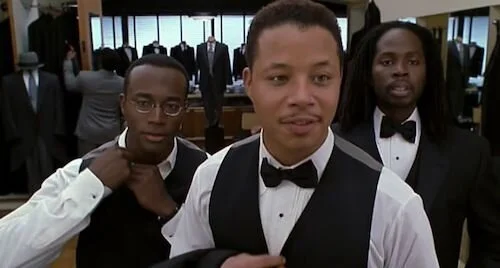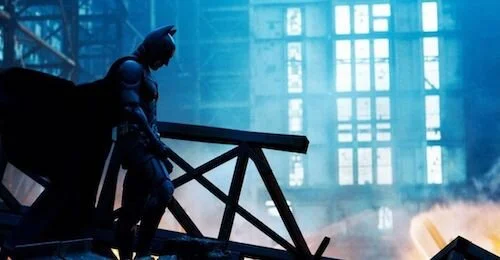Abraham Adeyemi and No More Wings: Encapsulating the Human Experience
Filmmaker Abraham Adeyemi has had quite a resume before even outside of being a film director. A BA graduate from Birkbeck University (with a degree in Creative Writing), he became a part of British theatre groups, being a part of the Royal Court Theatre as a writer, and having his works showcase at the Hammersmith Lyric, Royal Stratford East and Birmingham Rep. Having written for television as well, Adeyemi has shown excellency in writing for different mediums and environments. One such triumph is his latest short film No More Wings: a reunion between two friends as life is passing by. Accepted by film festivals, including Aesthetica Film Festival, Raindance Film Festival, and the London Short Film Festival, No More Wings is a beloved release that has already created quite a sensation for Adeyemi.
We’re fortunate to say that Abraham Adeyemi was able to share that buzz with us, as we had an interview about his short film, what inspires him while he creates, how one adjusts their storytelling methods for different mediums, and the tricky ways of time. You can find the IMDb page for No More Wings here, and Abraham Adeyemi’s official page here. You can also follow Abraham Adeyemi on Instagram and Twitter. The trailer to No More Wings can be found below.
Films Fatale: How does it feel to get your voice out there for the first time, to be able to say “Hey, I’ve made a film for people to see”?
Abraham Adeyemi: It feels incredible, if I’m honest. It’s not the first time I’ve had my voice out there, so to speak, in terms of my writing for a number of years. It is the first time that I’ve directed, and therefore it’s a different kind of voice, and actually — and one might argue that — this is the most sincere version of my voice. I know from having written work for other people — written for myself that’s then been taken by another director — it hasn’t always felt like the clearest version of my voice. It does feel incredible. It still feels somewhat surprising, as someone who doesn’t particularly intend to direct, to have done it and have it turn out pretty well… it’s a fantastic feeling. Very happy, and the reception to the film has been magnificent, and I’m so grateful for it.
FF: Are shorts a medium you prefer, or do you want to dive into features?
AA: It’s sort of feature length and TV for me. I’ve written way more features and TV scripts than I have shorts, but the way that the industry works is to get to that point, you have to have, I guess, proven yourself in that smaller medium. Also, I think prove to yourself as well in terms of what you learn about yourself as a writer and as an artist when you’re making shorts, and figuring out what you want to say about your work and the kinds of stories you wish to tell. I wouldn’t say that shorts are my medium. I’ve worked very much for TV and long form. Getting back, shorts have definitely served a purpose as far as my career, and I’m very glad to have made some.
FF: With features and television series, you have a lot of time to develop characters and establish scenarios, whereas shorts don’t grant you that same amount of time. Was that a challenge, especially with making a minimalist short like No More Wings?
AA: I think it’s definitely a challenge in shorts. I think where shorts sometimes fail is that you don’t really get a sense of the story, or you don’t really get a sense of character. What you’re finding is almost as if it’s just a scene. It’s not a self contained story, or it’s not something which is meant to be more. It can be great. I never watched it, but there’s that short where Whiplash came from, and that’s of course become a feature film. I’ve heard great things about that short film. In making No More Wings, knowing that I wanted to keep the film at ten minutes was definitely a struggle in the redrafting process, where you’re rewriting and rewriting, trying to crystallize your message and the things you’re trying to say in the story… all these things you want to talk about, but you can only talk about so many when you know you’ve got a limited amount of time. That’s what the redrafting process is for.
That’s what your relationship with your script editor is as well, who sees what you’re trying to say, and gives you advice on how to say it effectively; create characters and a story and a world which an audience will ultimately care about. My short film was ten minutes long. In a feature film, you might have ninety minutes, or in a TV series you might have two hours. There’s a message in that. If you’re watching film and TV, if you’re not engaged in ten minutes, you’re probably gonna switch over and end up not watching it. A short film is a great way of seeing “can I get people to care about what I’m saying and doing within ten minutes?” “Can I get them to want more?” If you can get them to want more, I’d like to think you’re onto a winner, because to want more beyond than ten minutes is a film or a TV show.
FF: You bring up wanting more. Unless you’re a filmmaker like Don Hertzfeldt who specializes in shorts and follow ups, usually there is no follow up, so making sure that everything wraps up in a short is also a challenge in and of itself.
AA: Yes, I’d agree. I’ve never written a short with the ambition of wanting to tell more, which is something I think a lot of filmmakers do, and it works for them. For me, I only ever write stories for what their purpose is. If I’m writing a short, I’m writing it to be a short. If I’m writing a feature, I’m writing it to be a feature. If I’m writing a pilot, it’s meant to be a pilot, or a TV script. I don’t think I [write with the intention of releasing more of the same story]. It wasn’t a consideration for me in the creation of No More Wings. I’m all about it ever since, based on the film’s success and some of the opportunities that have since come my way, but at least in the inception and the ideation and the creation, it was never about “what’s the bigger version of this story?” I just think that the story itself, fortunately, lends itself to being able to be about more, because we’re seeing fifteen years of life in the space of ten minutes. There’s a whole load of blanks to be filled in! Within those fifteen years as well is the before and after of that fifteen year period as well.
FF: Now that we’re getting into the meat and potatoes of No More Wings, no pun intended.
AA: (laughs)
FF: It sounds like you don’t like to ride on the seat of your pants when writing and creating: you like to know where you stand. Did you always want to tell a story about South London? Was it a personal connection?
AA: It was a bit of all of those things. I grew up in South London: born and raised. I currently live in South London. I actually moved away for about three or four years, but I returned recently. In that way, there’s some elements which, of course, are inspired by things I saw around me. That chicken shop in the film I’ve been to a million times (to that very specific branch). It had also been a story I had wanted to tell for a long time. I see a depiction of black London — especially black South London — which is associated with gang crime, or just crime in general. For me, it was another side to this story that’s endearing, that’s touching, that’s emotional, which can also talk about all of those things without looking necessarily at the darker side. It’s more concerning itself with cause and effect, and how easily the causes and effects can happen. How, in the blink of an eye, all of a sudden, someone’s life completely changes. That’s kind of what I was wanting to do there.
For me, something that was very specific is when I talk to people about the film, I often say “This film could have been about anyone”. It could have been said in any way. It could have been in a café, it could have been in a Michelin star restaurant, it could have been absolutely anywhere in the world. Or you have two people of different colours, different races, different genders, or the same, whatever it is. It’s still a meeting in similar circumstances, where they’ve started life together as teenagers and they’ve grown apart, then they return together. What does that look like? I think it’s something that so many people can relate to. Whether it’s me, whether it’s you, whether it’s Barack Obama! (laughs) Whoever you want to say, they’ve had an experience where, once upon a time, someone was pretty significant in their life, and then they part for whatever reason, you end up in different journeys. What does that look like, and why?
FF: When you were making No More Wings, were you reflecting on personal divides that you’ve experienced, where you’ve drifted apart from good friends?
AA: Yeah, I think it’s something I continue to experience since I entered my twenties. People grow apart. People have entered my life in my twenties, and later on we’ve grown apart. It’s not malicious, or like someone’s done something wrong. Sometimes you find yourselves in different phases in life, and different chapters. Sometimes it means you can't all be a part of the same life. Even at the moment, a lot of my friends are wanting to have kids. That has an affect, not necessarily on me but on on some other friends. I’m excited for my friends having kids, and I love spending time with them and their children.
But other people might feel like “we’re now in different phases in life,” “we can't do the same things anymore” and they're not ready for that change. I think it’s probably a cycle that continues for our lives. You have the friends where you stick together and go through changes; you're able to maintain relationships. In other friendships, it might just not be possible. I think that’s one of the things that we have to come to terms with in life. It’s difficult. Friendship breakups are very, very painful. They're arguably more painful than romantic breakups, one might say.
FF: With romance, you jump into the unknown. You get hurt, but you appreciate the risk you took later on. With friends, there's that safety net, and it’s been removed without you knowing.
AA: Yes, precisely.
FF: You mentioned that you wanted No More Wings to be for anyone who was watching. In 2020, the topic of representation is still urgent. How important is it to have all voices heard, and how much progress is still needed?
AA: For me, it’s incredibly important. As a storyteller, all I’ve ever wanted to do is tell universal stories. These are things that happen, whether it be to me, whether it be to the people around me. I just wanted to reflect a world where you can see yourself in stories. Growing up, I have watched films with predominantly white leads, and I would love those films and enjoy them. For me personally, there wasn’t an element of me which couldn't see… because the characters were white that “I can't connect to them” or “I can’t relate with them”. There are a lot of people that feel that way.
There are a lot of people that feel that way in the opposite direction, where they see stories of people of colour, or people who aren’t them, whether it be race or gender or anything else, and because of that they say that they can’t relate. For me, I find that really bizarre. With my work, I hope that I can create work that helps people see themselves on both sides of the fence, whether it be because they completely identify with them, or because, even though the person doesn’t look like them, they still share experiences and commonalities. It is very important to me.
FF: We like to send interviews off with the most basic question, based on why we are all cinephiles. What are your top five films of all time, and why?
AA: My answers change over time, and I always say that nobody’s allowed to bind me to them! I’m gonna answer now, and if you ask me again in an hour, I’d probably give different answers. I’m gonna give the first five films that come to mind.
Boyz n the Hood
AA: Boyz n the Hood by John Singleton.
Home Alone
AA: Home Alone. I absolutely love Home Alone. Although… Do I mean Home Alone, or do I mean Home Alone 2? I love both, and they're the exact same film! (laughs)
The Breakfast Club
AA: The Breakfast Club. I absolutely adore The Breakfast Club.
The Best Man
AA: The Best Man. That’s four… I got one more film left in me! What am I gonna pick for the final one?
FF: You can go up to ten if you want.
AA: God, you wanna give me ten?!
The Dark Knight
AA: Number five's gotta be The Dark Knight! It’s Christopher Nolan. I absolutely love it. I can easily go to ten, but those are the five that I’ll go with.
FF: There is a common ground, in a weird way. A lot of those choices are based on spatial and personal relationships, if I can make the most bold connection between those films.
AA: Personal relationships are very important to me. It definitely resonates for all my writing. Whether it's something as small and intimate as The Breakfast Club or No More Wings, or it’s on a much bigger scale where you have these smokes and mirrors like The Dark Knight... that's what I connect with best. The personal relationships and the personal connection.
Andreas Babiolakis has a Masters degree in Film and Photography Preservation and Collections Management from Ryerson University, as well as a Bachelors degree in Cinema Studies from York University. His favourite times of year are the Criterion Collection flash sales and the annual Toronto International Film Festival.

